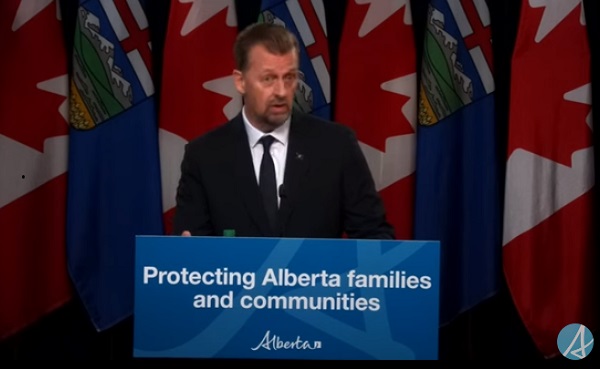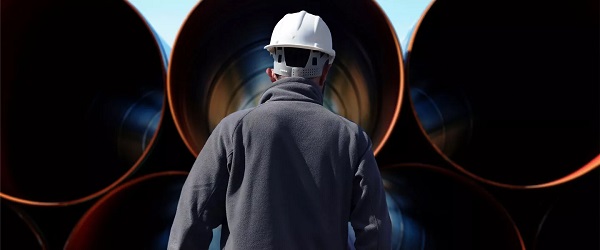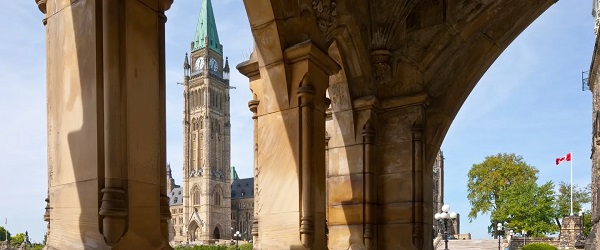Business
Canada’s Future May Lie In Continental Integration

From the Frontier Centre for Public Policy
Only bold economic, regulatory and security integration with the U.S. can rescue Canada from decline and counter China’s influence
A unified market with the U.S. could deliver opportunity, stability and security that Canada can’t achieve alone
With the Canadian middle class shrinking, trade tensions rising, and young Canadians eyeing the exits, Kevin O’Leary’s call for a European-style economic union between Canada and the U.S. might be the bold move Canada needs.
Late last December, the Canadian businessman affectionately known as Mr. Wonderful, reignited a long-simmering debate over “continentalism,” the idea that Canada and the United States should pursue deeper economic, political and social integration—perhaps even a full union.
Unluckily for O’Leary, his pitch landed with the grace of a lead balloon. Incoming president Donald Trump promptly declared that Canada should just become the 51st state. So much for subtle diplomacy.
Trump’s blunt response deflated any serious talk of continentalism—and the idea was soon buried under growing political friction between Ottawa and Washington.
Continentalism has a long and surprisingly respectable pedigree in Canada. After Confederation in 1867, British-born Canadian intellectual Goldwin Smith—then one of the country’s most prominent thinkers—emerged as a champion of North American integration. His 1891 book Canada and the Canadian Question laid out a detailed case for union with the U.S. Opposing camps favoured clinging to the British Empire or forging total Canadian independence, neither of which answered the structural weaknesses of a relatively small, export-dependent economy trying to compete on a global scale.
Today, the rationale for a Can-Am union is arguably stronger than ever. A truly unified North American market—underpinned by shared rules, a common currency and harmonized supply chains—would reduce transaction costs, attract capital and boost investor confidence. Regulatory coherence would also drive trade and secure access to critical materials without relying on unstable suppliers or hostile regimes.
Beyond the economics, labour mobility could ease shortages, fill demographic gaps and open new doors for ambitious workers. For many young Canadians, continental freedom of movement might not just be appealing—it may be essential. The ability to live and work seamlessly across a vast, integrated market could create a new generation of mobile, prosperous professionals less bound by national economic stagnation.
Critics often frame continentalism as capitulation. But in truth, it would require careful negotiation, robust constitutional safeguards and strong protections for Canadian identity. It’s not about assimilation—it’s about adaptation in a changing world. If the European Union can coordinate 27 nations with different languages, histories and political systems, surely two long-time allies sharing a common border and a common language can devise an arrangement that respects sovereignty while fostering opportunity.
Together, Canada and the U.S. represent nearly 389 million people across 19.8 million square kilometres, producing close to $32 trillion in GDP. That’s not a bad bloc to belong to.
A continental order would also strengthen the geopolitical clout and security of both nations. A unified democratic bloc based on free enterprise could rival China, Russia and other authoritarian players. With a southern border wall already up, North American security could be reinforced with joint enforcement against illegal migration and drug smuggling. Shared intelligence and military coordination would enhance defence in a volatile multipolar world. This kind of integration could also counter rising cyber threats, energy insecurity and supply chain instability that neither country can fully address alone.
An EU-style North American council or commission could allow for cooperative decision-making without erasing national sovereignty. Unlike outright federation, this approach would preserve Canada’s independent institutions while offering a forum for joint policy development, dispute resolution and regional economic planning. If Germany, France, Italy, Spain and Portugal can make it work—despite centuries of war and deep cultural divisions—surely we can too.
Of course, resistance is alive and well.
Powerful interest groups recoil at anything that threatens their turf. Big Labour warns of wage erosion in a common job market. Canadian politicians fear cultural absorption. American lawmakers don’t like sharing the steering wheel. Even among the public, knee-jerk nationalism often drowns out sober economic analysis.
Still, reality is making continentalism harder to ignore. Ambitious Canadians trapped in a declining middle class are looking for exits—and for some, continental mobility may be the only way out. Many are already voting with their feet. In 2024 alone, roughly 106,000 Canadians left the country, one of the biggest outbound waves in recent memory.
Despite Ottawa’s steady stream of anti-American messaging, the U.S. remains destination No. 1. More than a million Canadians now call it home. And that number is likely to grow as Canadian living costs rise and public services strain under demographic and fiscal pressure.
As Harold Wilson once said: “He who rejects change is the architect of decay. The only human institution which rejects progress is the cemetery.”
Continentalism may not be the only answer—but refusing to even ask the question is a luxury we can no longer afford.
William Brooks is a senior fellow at the Frontier Centre for Public Policy. He writes on cultural identity, democracy and Canadian institutions.
Business
PBO report projects soaring deficit and debt interest charges

The Canadian Taxpayers Federation is calling on Prime Minister Mark Carney to cut spending following today’s Parliamentary Budget Officer report forecasting the deficit to “increase sharply.”
“The PBO report should be a five-alarm siren to end the government’s debt-fueled spending spree,” said Franco Terrazzano, CTF Federal Director. “Carney must change course and cut spending because taxpayers can’t afford to pay more than $1 billion every week to cover the government’s debt interest charges.”
The PBO’s Economic and Fiscal Outlook projects this year’s “deficit to increase sharply to $68.5 billion.”
Carney’s annual borrowing will add about $255 billion to the debt over four years, according to today’s PBO report. For comparison, former prime minister Justin Trudeau planned on increasing the debt by $131 billion over those years, according to the most recent Fall Economic Statement.
Debt interest charges will cost taxpayers $55.3 billion this year, according to the PBO. That means the federal government will waste more money paying interest on the debt than it sends to the provinces in health-care transfers ($54.7 billion). Debt interest charges will cost taxpayers $82.4 billion in 2030.
“The federal debt-to-GDP ratio is projected to increase from 41.7 per cent in 2024-25, rising above 43 per cent over the medium term,” according to the PBO.
The Carney government’s spending is projected to increase by billions of dollars every year, according to the PBO.
“Carney sold Canadians on the idea he wasn’t like Trudeau and when it comes to the debt here’s the truth: Carney plans to borrow billions of dollars more than Trudeau,” Terrazzano said. “After a decade of out-of-control spending, Carney must make government more affordable and cut spending.”
The Carney government will release its first budget on Nov. 4.
Business
Watchdog Calls Out Carney’s Lack of Ethics Code

Democracy Watch Demands PM Re-Enact Full Ministerial Code and End Conflicts by Selling Investments as House Committee Probes Loophole-Ridden Ethics Law
The House of Commons Ethics Committee is finally cracking open the federal Conflict of Interest Act. It’s the first real review in years. And it’s overdue. Today, Democracy Watch is calling on Prime Minister Mark Carney to do something simple and obvious: re-issue the Prime Minister’s code for ministers and staff—publicly, in full—and work with every party to shut the gaping loopholes that have turned Canada’s ethics rules into a suggestion box.
The only publicly posted rulebook is still the 2015 “Open and Accountable Government” guide. It wasn’t signed by Mark Carney. It was signed by Justin Trudeau. Before that, Stephen Harper had his own “Accountable Government” code in 2007, which he strengthened in 2011. Paul Martin re-issued the code in 2004 as “Responsible Government,” and Jean Chrétien was the first to bring it in back in 2002. Every Prime Minister for more than two decades has put their name to a code—except Carney.
That’s a problem. Canadians deserve crystal-clear, enforceable standards: honesty, no apparent conflicts, decisions based on merit, real guardrails on political activity, fundraising, and dealings with lobbyists—and ministerial staff held to the same line. Put the rules in the PM’s own name or admit you plan to weaken them.
“Failing to re-enact the code—or watering it down—would gut already weak rules and further trash public trust,” said Duff Conacher, PhD (Law), Co-founder of Democracy Watch. “Canadians want standards with teeth, not press releases dressed up as ethics.”
Here’s what’s driving the urgency. The Conflict of Interest Act still lets the Prime Minister park massive holdings behind instruments branded as “blind trusts” or “ethics screens.” In practice, those devices often conceal participation; they don’t prevent it. That’s not oversight. That’s camouflage. Democracy Watch’s position is blunt: if you want to end the conflicts, sell the assets. Full divestment, including buyouts of stock options by Brookfield and any other connected companies, as past inquiries recommended.
“Prime Minister Carney’s so-called blind trust is not blind, and his ethics screen is an opaque mechanism that invites doubt about who benefits when the government acts,” Conacher said. “The fix is obvious: sell the investments. Anything less keeps Canadians in the dark.”
Parliament now has a choice. Use this committee review to close loopholes around blind trusts and ethics screens. Spell out what “improperly furthering private interests” really means. Put real independence, transparency, and penalties into law. And stop the double standard: cabinet and staff should face rules at least as tough as those on public servants and senators.
Democracy Watch is also urging broader reforms: clean up lobbying secrecy, slash the federal donation limit to cut off cash-for-access politics, protect whistleblowers who tell the truth, fix the federal access-to-information black box, and take the appointment of watchdogs out of the hands of the very politicians they’re supposed to police—no re-appointments, no cozy incentives.
And let’s be clear: this isn’t just Democracy Watch griping. It has credible grounding in the history of Canadian ethics law. The 1984 Starr–Sharp Task Force laid out a blueprint for a comprehensive ministerial code. Justice Parker’s 1987 commission went further, flatly recommending an end to the shell game of so-called blind trusts and, in cases of serious conflicts, requiring divestment. Parliament’s own research notes confirm it: the idea that you can “screen” away conflicts was discredited almost forty years ago. The fix was spelled out back then.
And yet here we are, in 2025, with a Prime Minister sitting on massive investments, hiding behind loopholes, and ducking responsibility to even sign his own code of conduct. Canadians see it. They know the difference between rules with teeth and ethics theatre.
Enough posturing. Enough smoke and mirrors. Re-enact the full PM Code today. Tighten the Act tomorrow. And end the Prime Minister’s conflicts by selling the assets outright. That’s how you rebuild trust, by earning it, by setting an example, and by standing on principle.
But let’s be honest: he won’t do it. He won’t because these Liberals are swamp creatures to their core. They talk transparency while cashing in behind the curtain. They preach accountability while hiding their own dealings. Canadians know it, and they’re sick of it.
Subscribe to The Opposition with Dan Knight .
For the full experience, upgrade your subscription.
-

 Canadian Energy Centre2 days ago
Canadian Energy Centre2 days agoAltaGas boosts Canada-Asia energy trade with new butane exports
-

 Autism2 days ago
Autism2 days agoAutism – what we know
-

 Business2 days ago
Business2 days agoOver $2B California Solar Plant Built To Last, Now Closing Over Inefficiency
-

 Alberta1 day ago
Alberta1 day agoAlberta’s Justice and Public Safety Ministers shoot down Ottawa’s firearm buyback failure
-

 Business2 days ago
Business2 days agoX challenges Ireland’s ‘Online Safety Code,’ warns of EU-wide censorship threat
-

 Alberta2 days ago
Alberta2 days agoFederal policies continue to block oil pipelines
-

 Health2 days ago
Health2 days agoMedical experts urge Supreme Court to protect women’s sports from ‘transgender’ males in landmark case
-

 Business2 days ago
Business2 days agoPublic Safety Minister admits gun buyback program is waste of money and resources – 742,000,000 projected cost to taxpayers










